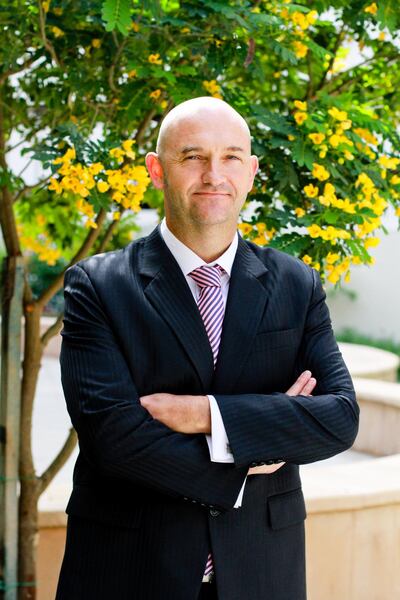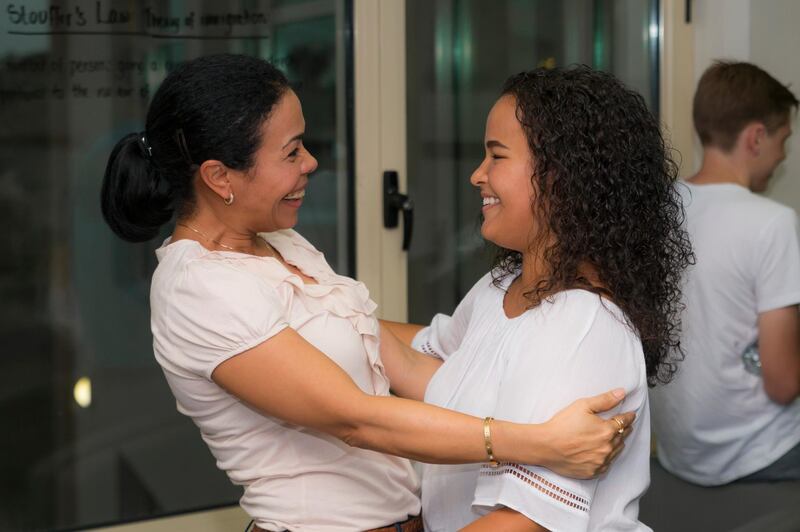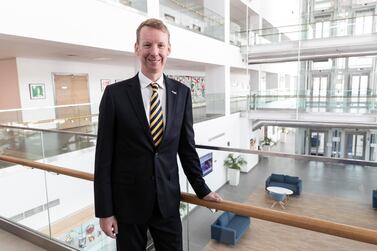Schools offering the International Baccalaureate curriculum in the UAE should cut their prices, education experts said.
The IB system is becoming increasingly popular, with many pupils in the UAE preferring its focus on independent thinking.
But the programme is only available at a handful of schools that charge tens of thousands of dirhams in fees a year.
Experts at the Global International Baccalaureate Conference in Abu Dhabi called for this to change.
"If all the schools [in the UAE] are only at a certain price point, somebody should break it and create an option here," said Siva Kumari, the director general of IB.
"The price for the IB programme is the same all over the world whether the school is charging £60,000 [Dh283,000] or £500 or for free, which is the case with many IB schools in the US."
The IB is the fastest growing curriculum in Dubai. It was found in two per cent of the emirate’s schools in 2010; this figure increased to six per cent by 2017, according to global property consultancy Knight Frank.
There are at least 48 dedicated IB schools in the UAE, while an unknown number offer the IB along with other curriculums.
Some private schools in the UAE that offer the IB charge more than Dh100,000 a year, compared with Dh37,071 at some of the country’s UK curriculum schools, Dh29,495 at US schools and Dh10,766 at Indian schools.
Dr Kumari said private institutions could be encouraged to lower their prices if the government added the IB curriculum to public schools.

However, school fees are not dictated only by which curriculum they teach but also their facilities.
"Our standards are about education practice, not about the [school’s] pool size or horse riding facilities. Those are choices that parents and schools make. That has nothing to do with the IB,” Dr Kumari said.
Many universities appreciate pupils who have come through the IB system as it encourages children to think independently.
"In the UAE there is a perception that the IB is an expensive, almost elite qualification which is inconsistent with the rest of the world," said Dean Pyrah, head of the UAE Association of IB Schools and executive principal at Victoria International School of Sharjah, a non-profit IB school.
"One of the things we want to do is to promote the IB as being inclusive and affordable, and engage with new school builders to talk through these things.
"In the US, the predominant IB programmes are at public schools and are free."
Martin Keon, deputy head of secondary at Swiss International Scientific School in Dubai, which follows the IB curriculum, said IB schools had to charge higher fees because they constantly have to train teachers.
"The IB programmes go through so many curriculum reviews and teachers have to keep on top of their professional development," he said.
Many IB schools also have specialised facilities such as laboratories that helped teach the curriculum in an engaging way but also increased the cost of resources at the school.
"That would account for why IB schools' fees in Dubai are much higher than schools in other countries. They do not have those facilities," he said.
"IB schools in the UAE have a lot more options for the pupils [than IB schools in other countries]. There are a lot more facilities and pupils can do things they could not do in other schools because they did not have those resources.
"Laboratories in UAE’s schools are extremely well equipped and pupils have access to new technology to design labs and home economics labs. Some schools do IB with much smaller course offerings and a smaller budget."
Mr Pyrah said competition between schools in the UAE means fewer are collaborating on teacher training, which is a cost-cutting method commonly used in other countries.
"I come from Australia where government schools doing the Australian curriculum have IB programmes," he said.
The IB curriculum is taught at more than 1,200 schools in 94 countries and IB pupils are sought after by universities. Between 2012 and 2017, the number of IB programmes grew by nearly 40 per cent.
"There is no reason why the fees are higher here, other than the marketing, commercial point of view. The operators use that perception to set their price point," said Mr Pryah.
Jameela Al Muhairi, Minister of State for Public Education, said the growth of the IB in the UAE was important.
"The private education system in the UAE is very diverse and families can choose from 17 curriculums," Ms Al Muhairi said.
"In the past 10 years, we have seen the tremendous growth of IB programmes offered at private schools across the UAE. The growth of the IB programmes in our schools reflects the vision of the UAE."








